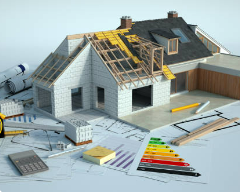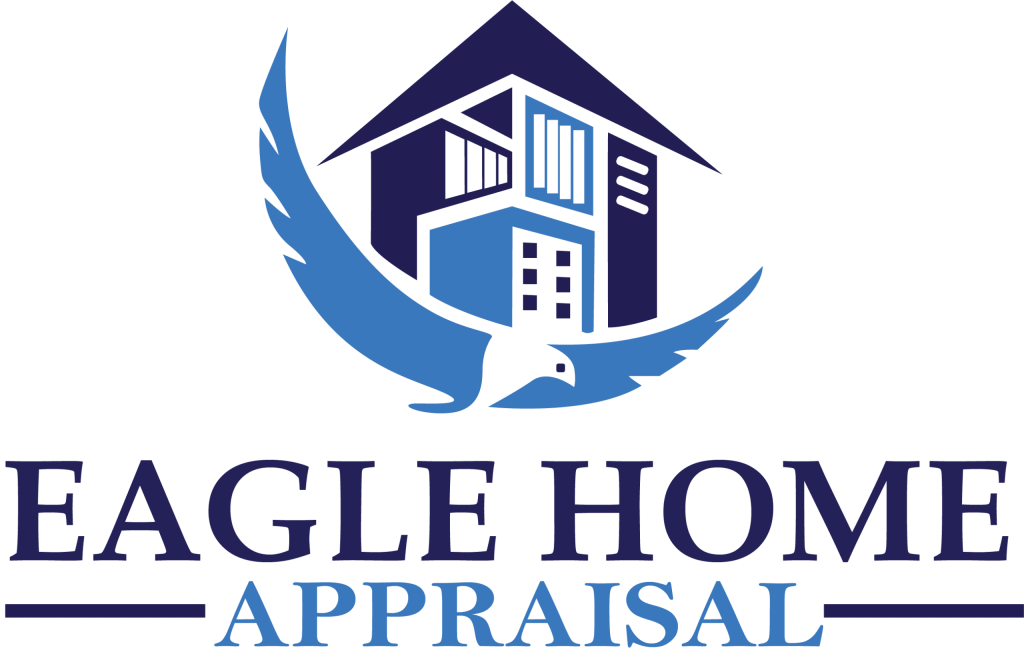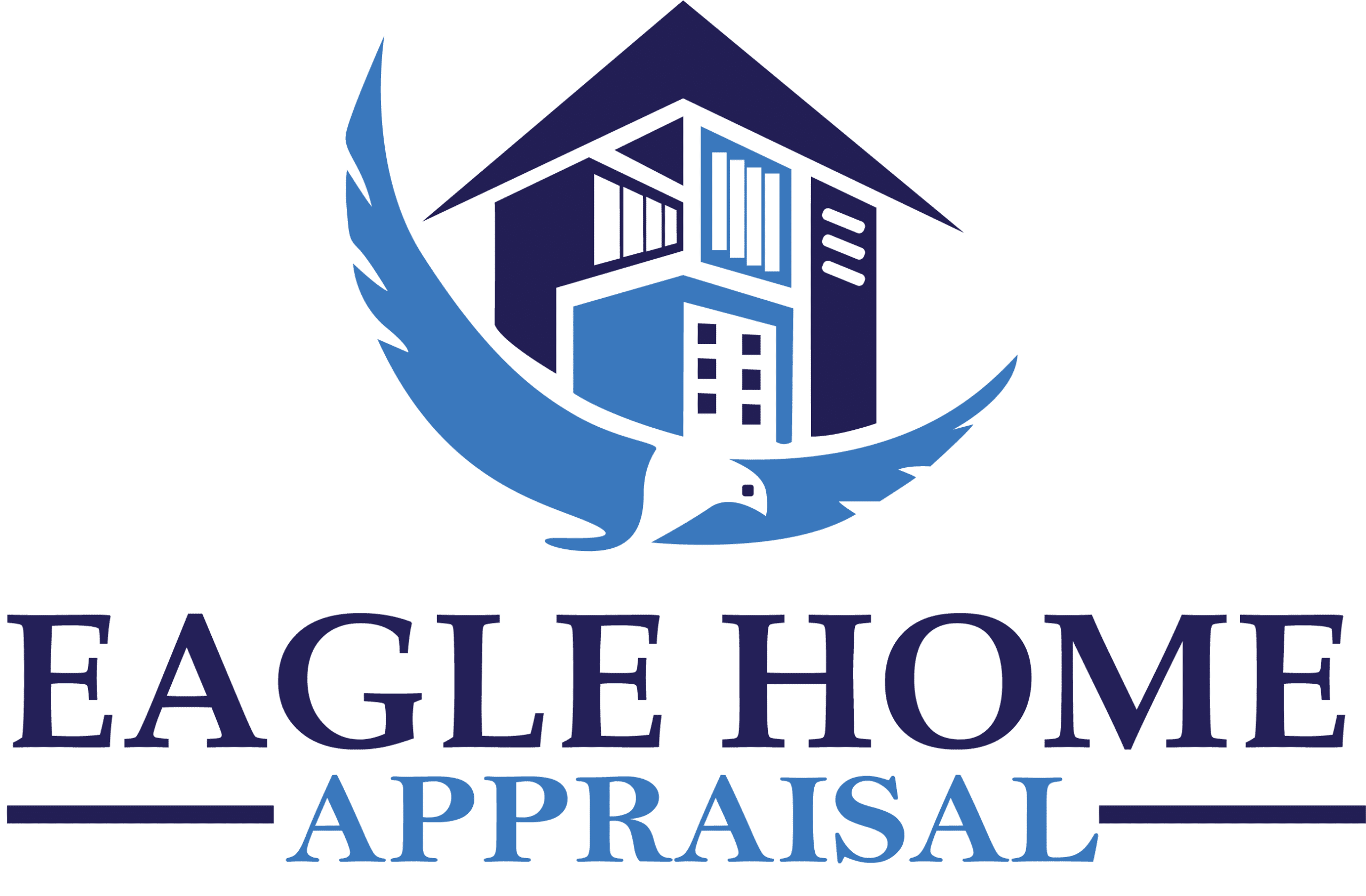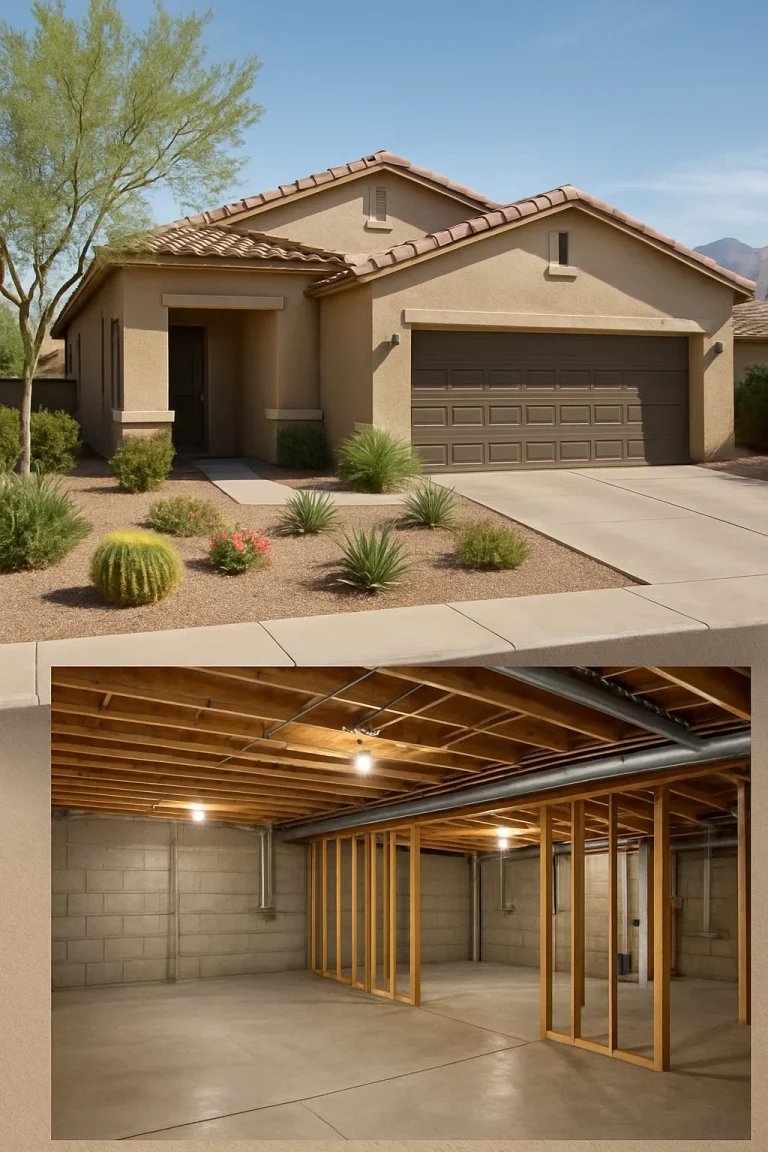How Upgrades and Renovations Affect Home Appraisals
 A home appraisal plays a crucial role when homeowners invest in renovations to make their living space more comfortable, efficient, or visually appealing. Whether it’s upgrading the kitchen, modernizing bathrooms, or installing energy-efficient systems, these improvements can enhance everyday life. But when it comes time to sell your home or refinance your mortgage, a common question arises: Do these upgrades actually increase your home’s appraised value?
A home appraisal plays a crucial role when homeowners invest in renovations to make their living space more comfortable, efficient, or visually appealing. Whether it’s upgrading the kitchen, modernizing bathrooms, or installing energy-efficient systems, these improvements can enhance everyday life. But when it comes time to sell your home or refinance your mortgage, a common question arises: Do these upgrades actually increase your home’s appraised value?
Understanding how home upgrades and renovations impact appraisals is essential—especially if you want to get the most return on your investment. While not all projects add value, many can significantly influence an appraiser’s opinion—provided the work is done correctly, documented thoroughly, and appeals to current market demand.
In this guide, we’ll explore how appraisers evaluate improvements, which renovations have the biggest impact, which ones may not be worth the cost, and how to maximize your appraisal outcome.
How Appraisers Evaluate Renovations
Appraisers don’t assign value based solely on what was spent or how beautiful a renovation looks. They follow standardized processes that compare your home to similar, recently sold properties (known as comparables or “comps”) in your area. Then, they make value adjustments based on characteristics like:
- Square footage
- Lot size and location
- Overall condition of the home
- Quality and functionality of improvements
- Unique features or upgrades
When it comes to renovations, here are the key factors appraisers consider:
1. Quality and Scope of Work
Appraisers differentiate between cosmetic changes (like painting or new hardware) and substantial improvements (like a full kitchen remodel or adding square footage). High-quality materials and professional workmanship can significantly impact valuation.
2. Recency of the Upgrade
More recent renovations are generally more valuable. A kitchen renovated five years ago holds more weight than one upgraded fifteen years ago—even if both were extensive.
3. Functionality and Efficiency
Appraisers consider whether the upgrade enhances the home’s livability or energy performance. An energy-efficient HVAC system, for example, might contribute more value than ornate lighting.
4. Permits and Code Compliance
Unpermitted work can be a red flag. Appraisers typically give little to no credit for improvements that were not completed to code or without the proper municipal approvals.
5. Market Demand
Even if you love a certain feature, it must appeal to local buyers to carry weight in an appraisal. A wine cellar or home theater might impress, but may not add value unless you’re in a high-end market where such features are expected.
High-Impact Upgrades That Can Raise Appraisal Value
While every home and market is different, some renovations are widely recognized for adding appraised value. Here are some of the most impactful:
1. Kitchen Remodels
Often called the heart of the home, the kitchen is one of the biggest drivers of perceived and actual value. Appraisers typically assign added value to homes with:
- New or updated appliances
- Quality countertops like quartz or granite
- Modern cabinetry
- Upgraded flooring and lighting
- Functional layouts that enhance space and flow
Even a minor kitchen refresh—like painting cabinets, replacing hardware, and updating the backsplash—can make a home feel more current and increase its appeal to buyers.
2. Bathroom Renovations
Outdated bathrooms can significantly lower a home’s value. A modern, well-lit, and clean bathroom suggests good maintenance and thoughtful upgrades. Consider:
- New vanities with stone countertops
- Frameless glass showers or soaking tubs
- Updated plumbing and fixtures
- Improved lighting and ventilation
Water-efficient features may also contribute positively to value, especially in environmentally conscious markets.
3. Energy-Efficient Improvements
Energy efficiency is a growing priority for both buyers and lenders. Upgrades that reduce monthly utility costs can enhance value and marketability. Appraisers may assign extra value if improvements include:
- Energy Star-rated windows and appliances
- Upgraded insulation in walls and attics
- Smart thermostats
- High-efficiency HVAC systems
- Owned (not leased) solar panels
Be sure to provide documentation showing energy savings, tax incentives, and warranty information when available.
4. Added Living Space
Additional livable square footage is one of the most direct ways to boost appraisal value. Whether it’s a finished basement, attic conversion, or home addition, more usable space typically means a higher valuation. High-impact examples include:
- Finished basement with a bathroom
- Attic converted into a bedroom or office
- Detached accessory dwelling units (ADUs)
- Bonus rooms or sunrooms that are climate-controlled
Just ensure the space is fully permitted, climate-controlled, and finished to the same quality standards as the main living area.
Renovations That May Not Add Much (or Any) Value
While some upgrades improve your home’s function or enjoyment, they may not increase its appraised value—especially if they are overly personalized or uncommon for your market.
1. Luxury Landscaping
Curb appeal matters, and well-maintained landscaping adds to a home’s presentation. However, elaborate gardens, fountains, or hardscape features rarely recover their full cost in an appraisal unless you’re in a luxury market where such upgrades are expected.
2. Swimming Pools
In warm-weather states like Arizona or Florida, pools can enhance value—if the neighborhood supports it. But in colder climates, or markets where buyers view pools as high-maintenance or risky, they may add little or even reduce market appeal.
3. Over-Customized Features
Highly personalized upgrades, like themed bedrooms, built-in aquariums, or bold color choices, might be meaningful to you but won’t necessarily translate to broad appeal. Appraisers and potential buyers could see them as projects they’ll have to undo.
4. Unpermitted Work
No matter how nice the finished product looks, unpermitted renovations are problematic. Not only can they reduce appraisal value, but they could also cause legal or insurance complications down the road. Always ensure any renovation complies with local building codes and permit requirements.
Tips for Maximizing Your Appraisal Outcome
If you’ve invested time and money into improving your home, here’s how to make sure those efforts are accurately reflected in your appraisal:
1. Keep Thorough Documentation
Save all receipts, contracts, warranties, and before-and-after photos. These can help demonstrate the quality and scope of your renovations. Appraisers can’t assign value to what they can’t verify.
2. Work With Licensed Contractors
Hiring professionals ensures that renovations are done to code, with proper materials and safety standards. DIY jobs may raise red flags or lead to deductions if quality is in question.
3. Focus on Function and Broad Appeal
Choose upgrades that offer functionality and energy efficiency—rather than trendy or hyper-specific design elements. Neutral palettes, durable materials, and modernized layouts tend to perform best.
4. Create a Renovation Summary for the Appraiser
Before your appraisal, create a one-page summary listing all upgrades, their dates, associated costs, and any permits pulled. Include documentation for big-ticket items like HVAC systems, roofing, windows, or solar panels.
5. Work With a Local Appraisal Expert
Partnering with experienced appraisers familiar with your area—like the team at Eagle Home Appraisal in Gilbert—can ensure that your upgrades are accurately evaluated in the context of your neighborhood’s real estate trends.
Final Thoughts
Not all renovations are created equal in the eyes of an appraiser. While upgrades can certainly improve your living experience, they only add measurable value if they align with market expectations, are completed professionally, and are documented thoroughly. Understanding the methods of home appraisal can help you better anticipate how these improvements will be evaluated—whether through comparable sales, cost-based analysis, or the income approach.
If you’re planning to refinance or sell your home, focus on projects that improve function, efficiency, and universal appeal. The goal isn’t just to spend money—it’s to make strategic improvements that yield a strong return on investment and stand up to professional appraisal scrutiny.
Curious how appraisers come up with a final number? Consider exploring the three main home appraisal methods—the sales comparison approach, the cost approach, and the income approach—to better understand the science behind property valuation.
By planning wisely and understanding how upgrades affect your home’s appraised value, you can protect your investment and maximize the financial benefits when it counts most.
Divorce Appraisals
At Eagle Home Appraisal Gilbert, we specialize in providing expert divorce appraiser services, offering expert witness testimony when necessary.
Estate & Trust Appraisals
At Eagle Home Appraisal Gilbert, we offer a comprehensive range of professional estate appraisal services to facilitate estate and trust planning.
IRS & Tax Appraisals
At Eagle Home Appraisal Gilbert, we specialize in providing professional IRS tax appraisal services to minimize capital gains on inherited property.
Real Estate Appraisal
Eagle Home Appraisal is a group of independent fee appraisers committed to delivering competent, credible, and reliable appraisal reports.
Eagle Home Appraisal Services Near Me
Comprehensive Property Appraisals
Expert Witness Testimony
Fair Market Value Assessments
Rapid Turnaround Times
Customized Solutions
Contact Eagle Home Appraisal Today
For more information about our services, get in touch with Eagle Home Appraisal. Our team is dedicated to providing the best customer service, ensuring all your appraisal needs are met with professionalism and expertise. Contact us today to learn more about how we can assist you.
Get A Free Consultation

copyright @2025 all rights reserved | Privacy-policy





